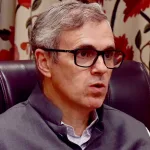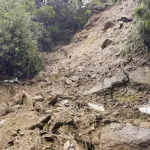In the world of politics, where the lines between religion, governance, and environmental stewardship often blur, leaders must tread carefully. A recent statement by Omar Abdullah, expressing concerns about the road to Amarnath, has sparked controversy and raised fundamental questions about the role of politicians in commenting on religious matters.
Omar Abdullah’s comments, which some have described as absurd and bizarre, have raised eyebrows due to their perceived insensitivity towards the concerns of a particular religious community. What is particularly striking is that these comments did not receive significant opposition from the minority community of Jammu and Kashmir, despite the potentially contentious nature of the topic. This disparity in reactions prompts us to reflect on the complex dynamics of religious discourse in the region.
Conversely, the author of the text argues that had such comments been made about religious subsidies or privileges enjoyed by other communities, particularly the Haj subsidy, they would have likely met with staunch opposition from fanatic preachers of religion. This discrepancy highlights the need for consistency in addressing sensitive religious matters and the potential double standards applied when discussing different faiths.
The text also touches on the perceived tolerance of Hindus in response to such comments. It points out that, to date, the tolerant Hindu community has not reacted strongly, but it warns against interpreting this as an endorsement for politicians to make derogatory remarks about religious places of worship or beliefs. In a rapidly changing world, the author emphasizes that political leaders should exercise caution and sensitivity when discussing religious subjects.
Amid the debate, Omar Abdullah’s concern for the environment comes into focus. The author questions what Omar Abdullah’s government has done for the environment, particularly during his time in power. They mention the deterioration of the iconic Dal Lake’s four chinars, which were neglected as funds meant for their care were allegedly misappropriated. Additionally, the misuse of crores of aid received for Dal and Wullar lakes raises questions about government accountability.
In contrast, the present regime is credited with restoring those chinars and enhancing the environmental dignity of Kashmir in the last four years. The author further queries the environmental initiatives undertaken by Omar Abdullah or his National Conference (NC) workers, particularly in Dal cleaning or other environmental campaigns.
The text also highlights the environmental impact of constructing golf courses during the NC’s regime, suggesting that many trees were cut down without corresponding reforestation efforts. The author challenges readers to compare the afforestation data from Omar Abdullah’s tenure as Chief Minister with the data from the last four years, revealing a significant increase in forest cover. This contrast calls into question the authenticity of politicians’ environmental concerns when they appear to use them as a tool to criticize specific communities.
The conversation takes an historical turn as the author recalls the 2008 high court orders. During that time, Mehbooba Mufti refused to accept the construction of a small place at Baltal for Hindu pilgrims visiting the Holy Cave, which eventually led to the Amarnath land row. The author argues that if the minority community has no issue with Haj subsidies and other privileges enjoyed by other communities, a road to the Amarnath cave should not be a concern either.
The text concludes by reminding readers of the critical role played by the government in managing environmental hazards. It mentions how illegal constructions in flood channels during Omar Abdullah’s regime obstructed flood control measures, ultimately leading to the catastrophic floods of 2014. This serves as a stark reminder that political leaders should prioritize genuine environmental responsibility rather than merely using it as a political talking point.
In a world where the public is increasingly aware and demands accountability from their leaders, the message is clear: politicians must approach sensitive matters with sensitivity, consistency, and genuine concern, whether it relates to religion or the environment. The controversy surrounding Omar Abdullah’s statement underscores the need for a more nuanced and balanced approach to governance in an increasingly complex and interconnected world.
(The writer is Spokesperson for BJP. Feedback: [email protected])





